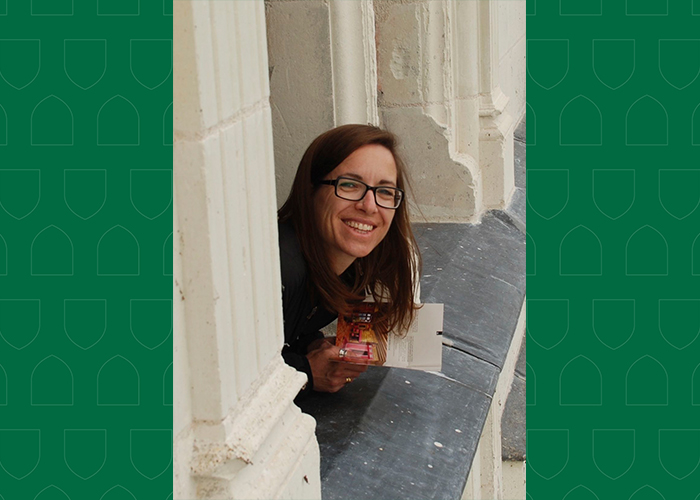
Women in Leadership: Teresa Paslawski
Although School of Rehabilitation Science associate dean Dr. Teresa Paslawski (PhD) did not initially consider a path to leadership for herself, she soon discovered she enjoyed doing the work of a leader.
By Erin Prosser-LooseMarch 8 is recognized as International Women’s Day, and the theme for 2021 is “Women in leadership: Achieving an equal future in a COVID-19 world."
Taking our cue on that theme, we are profiling women in leadership at the College of Medicine, selecting from a variety of positions including learners, staff, faculty, and senior administration.
What is your current position and/or leadership role/title?
Associate Dean, School of Rehabilitation, College of Medicine.
Describe one barrier you experienced, and something that helped you overcome that (or another) barrier, in your journey to leadership?
I hadn’t considered going a leadership route when I entered the academy, perhaps because of my limited thinking about what a ‘leader’ was and thinking that I wasn’t that. But when I thought of the work that is done in various leadership roles, the purpose, for example in my current role- I am truly excited about doing that work. So I think my barrier was a self-limiting belief and what helped me overcome it was focusing on the work, rather than some incomplete idea of what a “leader” is. Because in truth, leaders come in many forms.
How do you think COVID19 has affected women's progress in your field or the workplace in general?
I think it has been both an opportunity and a challenge. For many of us working from home, there was the challenge of separating the demands of home from the demands of work. But I think it also may have allowed us more flexibility in terms of when and how we showed up to work, which may have in turn allowed us to be more responsive to what was going on at home/in our non-work lives. I can only imagine the stress for families with young children, with the additional generalized stress of the pandemic, but I hope it also brought to the forefront the need for self-care and care of each other, which I certainly saw demonstrated this last year.
What advice would you have for people (of any gender) in leadership who wish to be allies in advancing women in the workplace?
Don’t make assumptions that your experience or perspective is someone else’s, or that you understand what someone else is going through just because you think you have things in common. One of my favourite quotes I heard this past year or so was from Nouman Ashraf, a phenomenal teacher/guide/leader from the University of Toronto, is something to the effect of ‘we should only guess about another person when they’re dead…. Otherwise, ask them.’ I think it’s important to ask how someone wants to be supported and to invite them to share what their needs are in the workplace.
